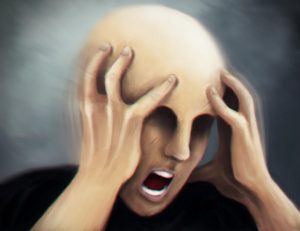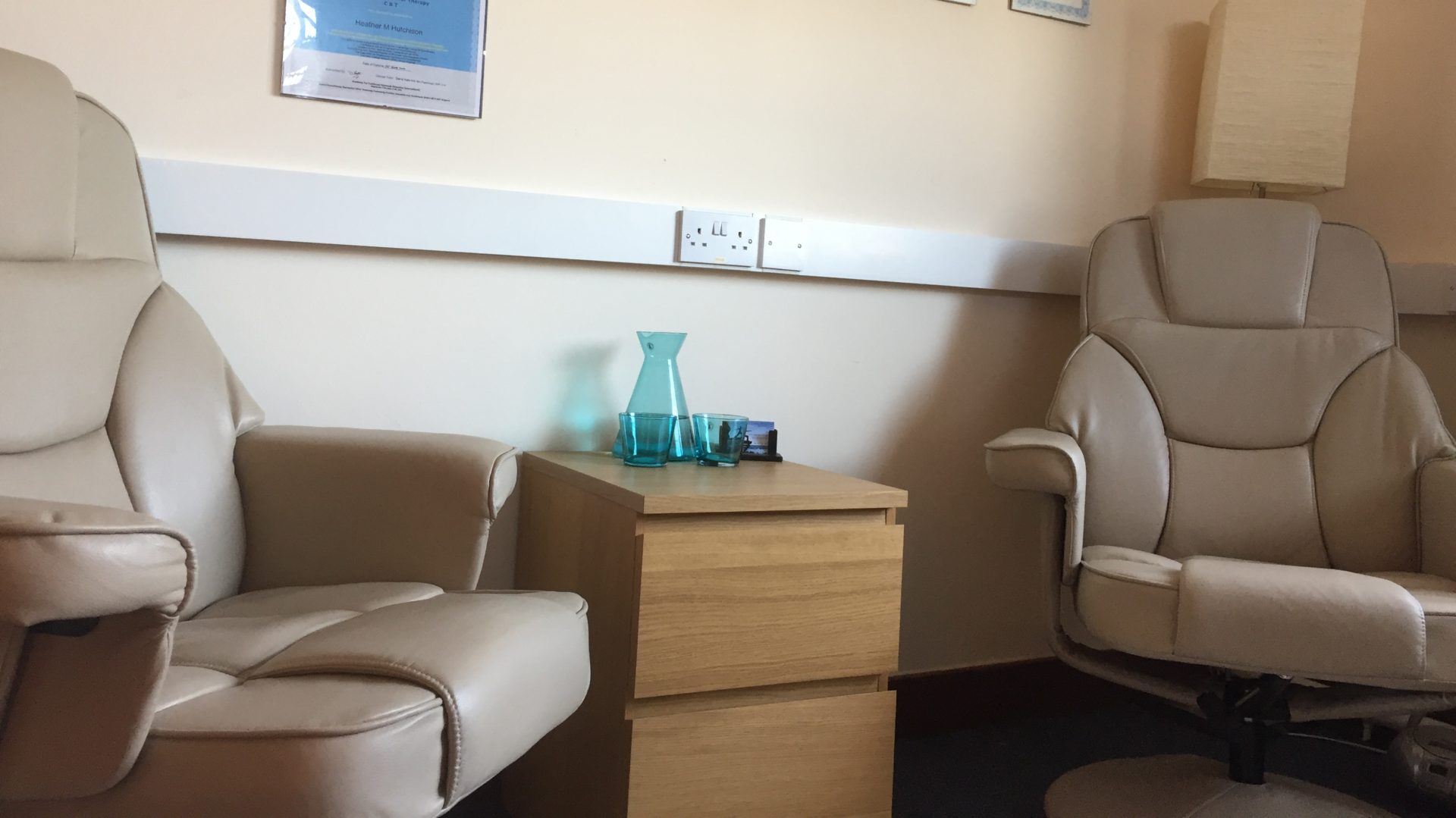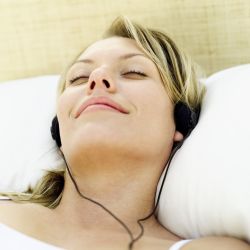What is Anxiety?
 We have all experienced anxiety at some time in our lives. Most people can relate to feeling tense, uncertain, and perhaps fearful at the thought of going for an interview, starting a new job, or going into an exam etc. You may worry about feeling uncomfortable, appearing foolish, or how successful you will be. In turn these worries can affect your sleep, appetite, and ability to concentrate. If everything goes well, the anxiety will go away.
We have all experienced anxiety at some time in our lives. Most people can relate to feeling tense, uncertain, and perhaps fearful at the thought of going for an interview, starting a new job, or going into an exam etc. You may worry about feeling uncomfortable, appearing foolish, or how successful you will be. In turn these worries can affect your sleep, appetite, and ability to concentrate. If everything goes well, the anxiety will go away.
This type of short-term anxiety can be useful. For instance feeling nervous before an exam can actually help you by making you feel more alert, and enhance your performance. However, if the feelings of anxiety overwhelm you, your ability to concentrate and do well may suffer.
Anxiety becomes a problem when it is persistent and stopping you from doing everyday things in your life such as answering the telephone or front door, or going to work or the supermarket.
Anxiety can make you imagine that things in your life are worse than they really are, and prevent you from confronting your fears. Often you will think that you are going mad, or that some psychological imbalance is at the heart of your troubles. Many of the symptoms of anxiety such as fast breathing, muscle tension, and increased heart rate are caused by the build-up of oxygen and/or the increase of adrenaline in the body caused by a perceived threat in the environment. This is known as the “fight or flight” response. The “butterflies in the stomach” feeling that many associate with anxiety is this mechanism kicking in, but instead of being used to avoid immediate danger, it is often wrongly and inappropriately activated in a person during normal, everyday situations when stress has built up, over time. It is normal for our Hypnotherapist to see people 6 months to a year after a stressful event in someone’s life such as a relationship break up or a bereavement. This is because when someone is dealing with a stressful situation then their body is in the “fight or flight” mode, adrenaline coursing through their body, so that when things have calmed down and they have time to concentrate again, their body is so used to the heightened level of arousal they notice the physiological changes which in turn cause the feelings of anxiety. However, not everyone is aware of a specific event in their lives that has caused the anxiety. Many people report that they first felt anxious as a child or don’t remember ever not feeling anxious.
Quite often anxiety can lead to a panic attack. This is an exaggeration of the body’s normal response to fear, stress or excitement. It is the rapid build-up of overwhelming sensations, such as a pounding heartbeat, feeling faint, sweating, nausea, chest pains, breathing discomfort, feelings of losing control, shaky limbs, and legs turning to jelly. If you experience this, you may fear that you are going mad, blacking out, or having a heart attack. You may be convinced you are going to die in the course of the attack – making this a terrifying experience.
Panic attacks come on very quickly, symptoms usually peaking within 10 minutes. Most panic attacks last for between 5 and 20 minutes. Some people report attacks lasting for up to an hour, but they are likely to be experiencing one attack after another, or a high level of anxiety after the initial attack. You may have one or two panic attacks and never experience another. Or you may have attacks once a month or several times each week. For some people they seem to come without warning and strike at random.
What are the effects of anxiety?
Anxiety can have an effect on both your body and your mind. Some of the most common physical symptoms of anxiety are:
- Increased heart rate
- Increased muscle tension
- “Jelly legs”
- Tingling in the hands and feet
- Hyperventilation (over breathing)
- Dizziness
- Difficulty in breathing
- Wanting to use the toilet more often
- Feeling sick
- Tight band across the chest area
- Tension headaches
- Hot flushes
- Increased perspiration
- Dry mouth
- Shaking
- Choking sensations
- Palpitations
Some of the most common psychological symptoms (the thoughts or altered perceptions we have) of anxiety are:
- Thinking that you may lose control and/or go “mad”
- Thinking that you might die
- Thinking that you may have a heart attack/be sick/faint/have a brain tumour
- Feeling that people are looking at you and observing your anxiety
- Feeling as though things are speeding up/slowing down
- Feeling detached from your environment and the people in it
- Feeling like wanting to run away/escape from the situation
- Feeling on edge and alert to everything around you
Impact on work, leisure and relationships
If your anxiety is severe, you may find it difficult to hold down a job, develop or maintain good relationships, or simply to enjoy leisure time. Sleep problems may make your anxious feelings even worse and reduce your ability to cope.
For some people, anxiety becomes so overwhelming that it takes over their lives. They may experience severe or very frequent panic attacks for no apparent reason, or have a persistent ‘free-floating’ sense of anxiety. Some people may develop a phobia about going out, or may withdraw from contact with people – even their family and friends. Others have obsessive thoughts or compulsive behaviour, such as endlessly washing their hands.
How can Hypnotherapy help with Anxiety?
Hypnotherapy can help with anxiety, as we work with the ‘unconscious’ mind to change the anxious feelings in those specific situations that make you feel anxious. These can then be replaced with feelings of confidence and control. Hypnotherapy for anxiety can also help you to begin thinking more rationally and positively on a day to day basis, these thoughts send signals to the body of calm and control, so you feel more relaxed throughout your day.
We may also explore any root cause of the problem if applicable to heal any possible trauma in the past (but only if applicable).
Through Hypnotherapy you can discover your own inner resources. This helps you to become more relaxed, with a sense of feeling ‘grounded’ and stronger. We work on a deep level through hypnosis, implanting powerful suggestions of confidence and building self-esteem to help you cope better with your day to day life.
We also teach you coping mechanisms such as progressive muscle relaxation, breathing techniques, CBT (Cognitive Behavioural Therapy) techniques such as Thought Stopping and various NLP techniques (Neuro-linguistic Programming) to control those anxious thoughts.
Everyone is different and everyone’s anxiety is different, at HMH Therapy we work with you as an individual to find the best solution to helping you to deal with your anxiety. Our goal is to help you as quickly as possible to manage on your own in as few sessions as is safe and possible. We are guided by you and how you feel so it is hard to tell how many sessions you will require but as a general rule most people suffering from anxiety need somewhere in the region of between 3-6 sessions. However, most people start to notice positive changes before the 3rd session.
At HMH Therapy we also use standardised forms for measuring your levels of anxiety and depression (quite often anxiety and depression come in tandem). You will be asked to fill out a form at Session 1 and again at session 3. This gives us a clear indication of the clinical change in symptoms between session 1 and session 3. It can feel quite empowering for you as a client to actually see how much your have improved and how better you feel by session three and gives a clinical indication at session 3 if more sessions are required.
Anxiety Help
Our Hypnotherapist, Heather holds 3 rolling places at reduced fees for people of limited means, who are in genuine need. These are reserved for single parents on low household incomes or people on unemployment benefit. Evidence of benefits required. Please contact me for more information.
Call 07787 807 609 for an appointment or book online below

